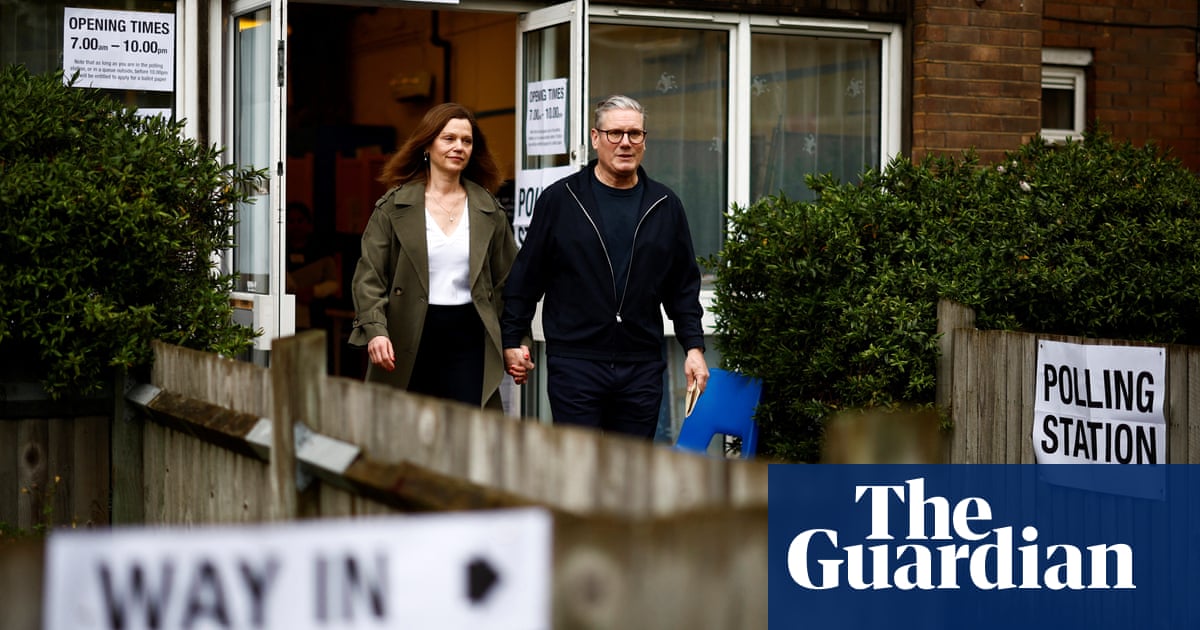
Cathy had voted Labour all her life. Then she heard an LBC interview with Keir Starmer. In it, he was asked if it was “appropriate” that Israel should besiege Gaza, cutting off power and water. “I think Israel does have that right,” Starmer replied. Cathy immediately resigned from the party, which she joined three years ago when Starmer was elected leader. “This has been the last straw,” she tells me. Previous straws, she says, include a raft of policies that Labour had watered down, and Tory policies that Labour would not repeal. But Labour’s position on the siege of Gaza has killed off the little faith she had left.
With that one interview and his response to its fallout, Starmer has demonstrated to some Labour voters not just his failure to engage with how strongly they feel, but a wider, more perilous vulnerability in his political project: a heartless intransigence that threatens to exhaust the goodwill so far extended to him.
Patience is running out, even among high-profile Labour figures. Sadiq Khan, Andy Burnham and Anas Sarwar have all broken ranks with the Labour leadership and called for a ceasefire. As Israeli forces step up ground operations in Gaza and the humanitarian situation grows even more desperate, on the cards is not just a Labour party revolt but a voter boycott.
The consistency in the position of several Labour voters I spoke to over the past few days is striking. The main assertion: they will not be voting for this Labour party. The reason: the party crossed a line by effectively endorsing Israel’s killing and besieging of civilians. The language of a final reckoning came up a lot: “a red line”, “a line in the sand”, “the straw that broke the camel’s back”, a “mask has slipped”. And the anger is by no means sectarian. “It’s easier to frame it as a Muslim issue,” says Calum, a member who has left the party. “It’s not a Muslim issue. It’s a human one.”
Labour’s damage limitation response did little but entrench this view of an untrustworthy, cynical leadership. It took Starmer days to address his LBC comments, and then, bizarrely, he claimed that he never said them at all. Then there was his visit to a mosque and Islamic centre in south Wales, a sanitation exercise that backfired epically. On social media, Starmer posted images of smiling congregants, saying he had “repeated our calls for hostages to be released, more humanitarian aid to enter Gaza, for water and power to be switched back on, and a renewed focus on the two-state solution”. A statement issued by South Wales Islamic Centre via the Muslim Council of Wales rejected Starmer’s version of how the meeting went, stressing that his “social media post and images gravely misrepresented our congregants and the nature of the visit”.
The debacle is symbolic of the tone deafness and remoteness of the upper ranks of the Labour party. The episode left those involved traumatised and unwilling to comment further on the matter, which means the severity of the aftermath has not been fully grasped. However, I spoke to Azim Ahmed, the secretary general of the Muslim Council of Wales, and he told me of a community now even more angry at Labour, because of how the visit was instrumentalised; and of the resulting damage to the relationship between local party representatives and Westminster. “It’s really undermined trust in politicians as a whole,” he told me. Feelings ran high not just because of a “principled abstract political standpoint. There are people in Wales who have had their families completely wiped out in Gaza. Sometimes, the degree of separation from someone who has died is two degrees, three degrees. This is people worried about people.”
One senior Labour party member described the resignation of Labour councillors in response to the party’s position on Gaza as “shaking off the fleas”. This approach has broadly characterised Labour’s approach to the dissenting views it has attributed en masse to a cranky left, but it seems increasingly risky when a high-octane political event galvanises people across a demographic profile that is too large to be so easily dismissed. Sulekha, another voter lost to Labour in the past two weeks, tells me of an atmosphere in her local area in Hackney where people are identifying with the Palestine issue through “different intersections” as it draws in “greens, feminists and a broader liberal coalition”. Meanwhile, polling reveals a political establishment dramatically at odds with the country as a whole, in which 76% are in support of a ceasefire. That’s a lot of fleas.
There are other risks. “The ground is shifting very quickly,” Azim told me. It’s been so long since Labour has been in government in the UK that “many young people don’t even have an experience of what that might look like”. If they form a strong negative view of the party now, “that reliance on being the only viable alternative is not a safe calculation at all”.
There are signs that Labour, practised now in the art of figuring out who it can shake off without hurting its re-election chances, is beginning to catch on. In addition to Starmer’s attempt to reverse his position, there have been meetings with Labour MPs and council leaders. But it won’t be enough. Winning over those that have checked out is about more than Gaza. It’s about addressing the growing impression of Labour as a party increasingly out of touch with, and contemptuous of, its grassroots, both in policy offering and tone.
Once that impression takes hold, any appeals to vote for the lesser of two evils will not land. That risk will never be fully grasped by a party constantly reducing protest to a numbers exercise, a flea calculation. I am told by a senior Labour insider that the Palestine issue is already being analysed solely in terms of which Muslim seats could swing away from Labour, and where wild card candidates can swoop in, campaign and win on this single issue, as George Galloway did in the past. The hope is that these are prospects unlikely to come to pass in a materially damaging way.
But let us for a moment release ourselves from the tyranny inflicted by the desperation to get rid of a calamitous Tory government, and Labour’s demand that we must simply hold our noses and follow its lead in order to achieve that end. Concerns and frustrations about Gaza still matter, even if they don’t show up in the polls, or if Labour wins anyway. Accusations that any objections to the Labour project enable the Tories expose a limited, shrunken understanding of what liberal democracy is for. It’s about voting, of course, but it’s also about consent, about the fact that voters are real people with feelings and visceral responses that they cannot be expected to neuter in the service of a political system that fails to represent them, and then blames them for it.
Hold people to ransom as they witness a vast injustice perpetrated and they might just exercise what they see as their only means of authentic political expression. “It’s quite rare for me to feel this much anger towards politicians,” Frank, another party supporter who will now not vote Labour, told me when I asked him if he has thought about how his abstention might help the Tories, “so I’m going to heed that.” It is a damning indictment of the Labour party that this response will probably be viewed not as a moral right, but as a luxury.
Nesrine Malik is a Guardian columnist












